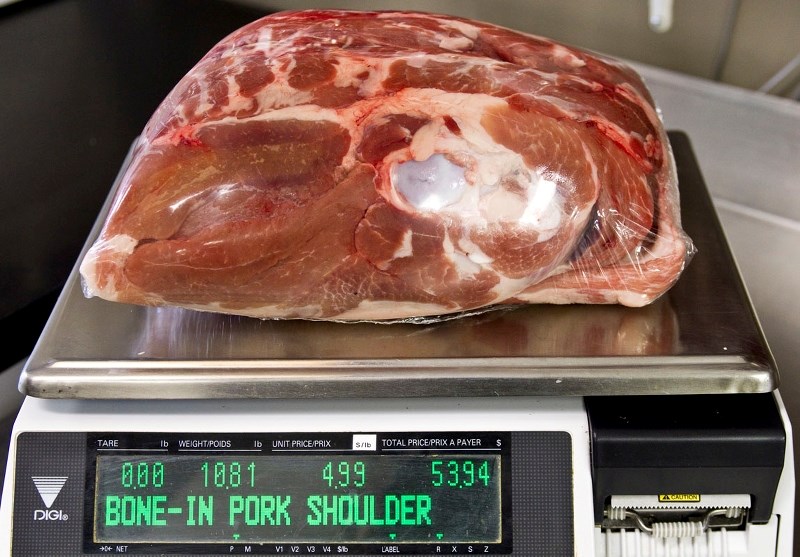You may not have noticed but my grocery bill doesn’t lie. The cost of meat and produce is going up and it’s not expected to come back down anytime soon.
A recent study by The Food Institute at the University of Guelph in Ontario predicted food prices would rise for the second straight year. Most of those increases will be in the price of meat and fish, and vegetables, all expected to increase by three to five per cent.
That’s not surprising, seeing the drop of the Canadian dollar and a few years of bad crop seasons in the United States – the country that imports half of the fresh produce bought by Canadians, says Yu Ma, associate professor of marketing at the University of Alberta.
“Prices have been going up for a while now due to droughts in the U.S., especially in California,” he says. “And now the oil price is dropping which means the economy is not doing as well as before, which means the Canadian dollar may be even weaker in the future.”
Statistics Canada reports that food costs have increased across Canada for years. In 2010, a kilo of ground beef cost about $7.50. By November 2014, that price had gone up to $11.98. Other products, such as potatoes, onions or apples have also increased in cost, anywhere from $0.20 to $0.70.
Not all St. Albert shoppers out to get their groceries this week have noticed the hike. But many said prices have gone up steadily over years, which is frustrating.
Some suggested they might have to cut down on their spending soon.
“You’ve got to start cutting down,” said shopper Carol Ferguson, adding that the overall state of the economy is not helping them save a lot of money. “We have to look at our finances and we are going to cut corners because we can’t travel as much as we like to.”
One man suggested that stores should start buying more Canadian products to keep prices down and compete with the American market.
Another, Dave Musey, said some stores sell products that you can find “10 times cheaper” at another. He suggested people shop around more before going to the grocery store.
“I try to plan the shopping around what’s the cheapest,” he said. “There is enough competition and it seems like you can find (affordable products) if you look.”
Most grocery stores will try to lower their prices as much as possible to remain competitive, says Ma. But at some point they cannot compete with supercenters and warehouse shops where products are offered in bulk quantities at a lower price.
As prices increase, people will shift their shopping habits to these stores, he said.
“They may also trade expensive national brands for cheaper, private label store brands,” he said. “And they may go to fewer restaurants.”
For now, St. Albert restaurants are not too concerned. Darek Ziemian, owner of Original Joe’s, said he noticed prices going up but does not expect to adjust his prices anytime soon. And customers continue to visit his business, he said.
“Most restaurants base their menu on an overall year price not a quarter or three to six-month adjustment period,” he said. “The cost is more noticeable at a grocery store. The restaurant doesn’t adjust its prices every month or week.”
He added that the cost of produce has gone up since October but prices usually rise in the winter and then drop again in the summer. He added that restaurants budget carefully. If an adjustment to the price is made, it will be small, he said.
But food prices do not only concern our pocketbooks but also our belly lines.
Once buying fresh fruit and vegetables becomes too expensive, many people will switch to cheaper, unhealthier meals. That habit will be hard to break, even when prices go down again, said Ma.
“In the future, maybe 10 years later, we will have to pay the cost of health care for that,” he said.




